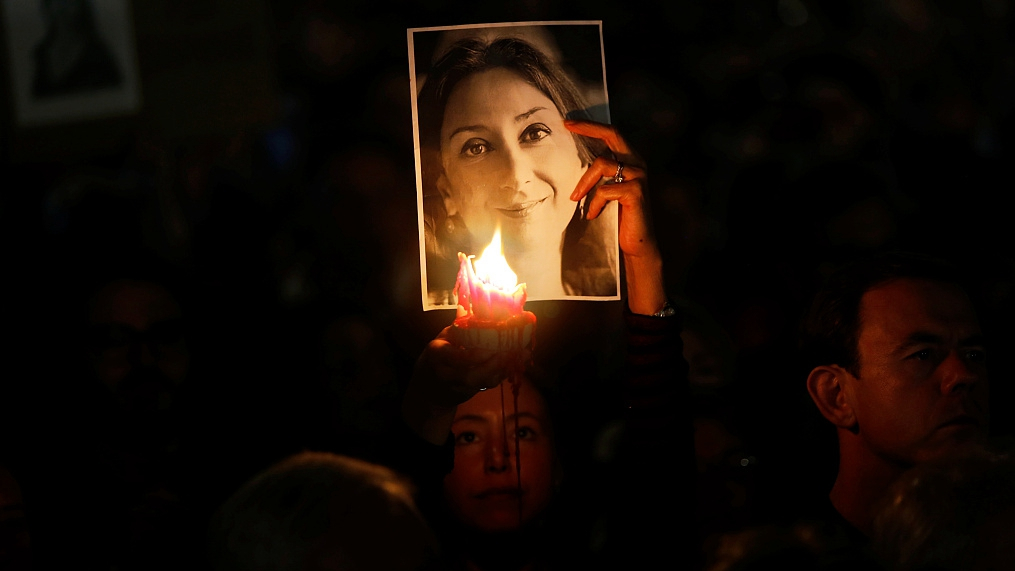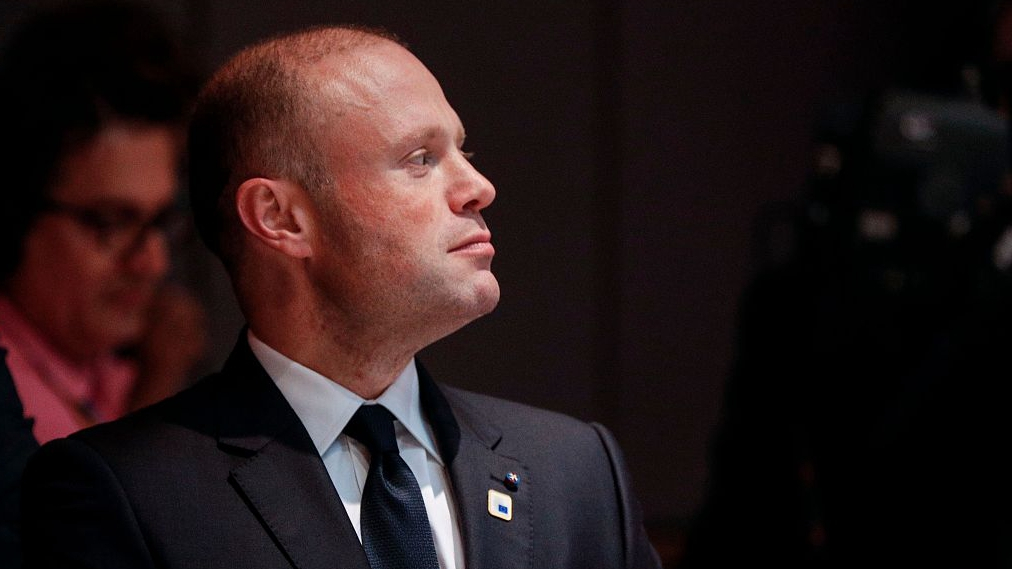Three senior figures in Malta's government stepped down on Tuesday as the political fallout from a probe into the brutal murder of investigative reporter Daphne Caruana Galizia continued.
The resignations of Keith Schembri, the chief of staff to Prime Minister Joseph Muscat, and tourism minister Konrad Mizzi, together with economy minister Chris Cardona's decision to suspend himself, heaped pressure on the government over its handling of Caruana Galizia's car bomb assassination in 2017.
What was behind the resignations?
"Murderers!" chanted hundreds of protesters gathered outside parliament on Tuesday, with some throwing eggs at Muscat, who has been accused of impeding justice by protecting his closest allies.
Sources told AFP that Schembri had been called in for questioning by police after being fingered by the main suspect in the case, prominent businessman Yorgen Fenech.
Fenech, who was arrested on his yacht last week as he tried to leave the country, has requested immunity to reveal what he knows. The mogul was released on bail on Tuesday.

A person holds a candle in front of a picture of anti-corruption journalist Daphne Caruana Galizia in Valletta, Malta, October 16, 2019. /VCG Photo
A person holds a candle in front of a picture of anti-corruption journalist Daphne Caruana Galizia in Valletta, Malta, October 16, 2019. /VCG Photo
Investigators suspect Schembri may have tipped Fenech off, sparking the failed getaway bid, Maltese media reported. Muscat refused to say what prompted Schembri's decision to resign, telling reporters it was premature to speculate.
Hours later, Mizzi told journalists it was his "duty" to step down to allow Muscat's government to complete its term. In another blow, Economy Minister Chris Cardona's office said he was "suspending himself with immediate effect … pending the investigations."
Opposition leader Adrian Delia told parliament that Muscat's position was "untenable, because the only decisions he can take are to protect those around him."
What happened to Caruana Galizia?
Caruana Galizia, a popular journalist and blogger described as a "one-woman WikiLeaks," became known for exposing cronyism and sleaze within the country's political and business elite.
She had alleged that Schembri – who served as Muscat's chief of staff since 2013 – and Mizzi had been involved in corruption, claims both men have denied.

Journalist Daphne Caruana Galizia's sons Matthew and Paul carry the coffin of their mother, who was murdered in a car bomb attack, in Mosta, Malta, November 3, 2017. /VCG Photo
Journalist Daphne Caruana Galizia's sons Matthew and Paul carry the coffin of their mother, who was murdered in a car bomb attack, in Mosta, Malta, November 3, 2017. /VCG Photo
She had also reported that Cardona had visited a German brothel while on official government business. He had been suing her over the claim at the time of her death, according to Maltese media.
The murder sparked outrage and protests in the Mediterranean island. Her son Matthew tweeted on Tuesday that Muscat "simply cannot be trusted to not obstruct justice."
How has the PM responded?
Muscat insisted on Tuesday he "never turned a blind eye to impropriety."
"What is happening with the recent developments shows that whatever people might say or think, the institutions are working," he added. "I would definitely resign if there were any association between myself and the murder."
But Caruana Galizia's son Andrew said "evidence continues to emerge... that the most powerful figure in the Maltese government had a hand in" the murder of his mother, and "used his position to cover it up." He said that Schembri was "the first name we gave to the police two years ago."

Malta's Prime Minister Joseph Muscat attends a working dinner during a European Council Summit in Brussels, June 30, 2019. /VCG Photo
Malta's Prime Minister Joseph Muscat attends a working dinner during a European Council Summit in Brussels, June 30, 2019. /VCG Photo
Three men face trial for carrying out the murder, but the mastermind has never been identified.
Reporters Without Borders said on Tuesday the "financial interests" of Muscat's cabinet presented a "serious possibility of a conflict of interest" and warned the PM's decision to be the sole person to speak to the media about the case was worrying.
The Council of Europe's special rapporteur Pieter Omtzigt, appointed in 2018 to monitor the investigation, said Tuesday's developments raised "urgent questions" for the prime minister.
(With input from AFP)